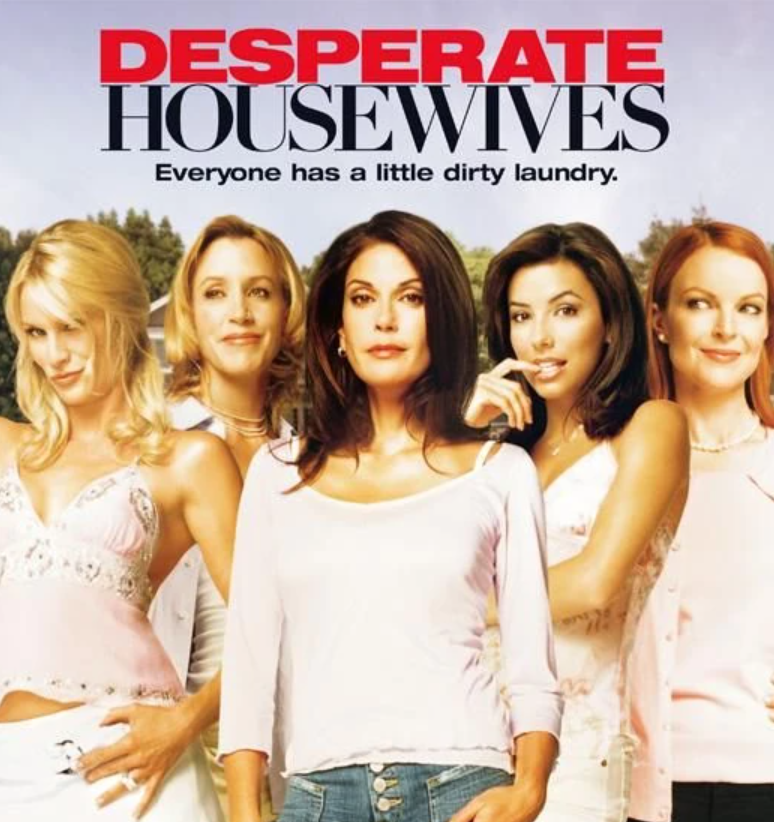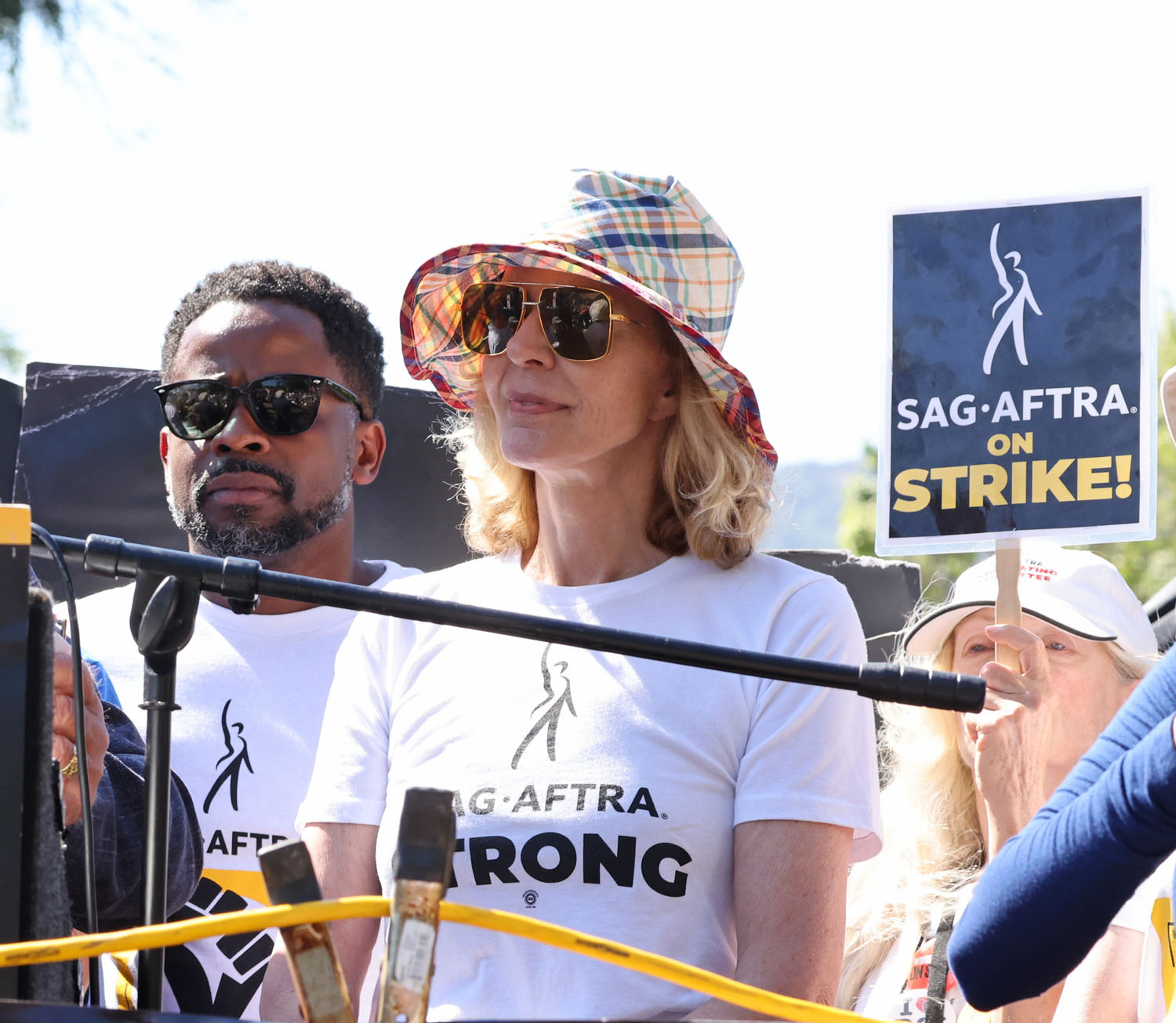The strike is about more than just money



A former staffer on the Desperate Housewives set is helping to paint the picture of just how toxic the work environment was. In her new book, End Credits: How I Broke Up With Hollywood, Patty Lin, who worked on the first season of the show, says eye contact with actress Teri Hatcher was avoided by staffers.
“The writers weren’t barred from the set, but we weren’t exactly welcome,” she wrote. “Usually we’d only see the cast at table reads, where we’d sit quietly in the back and try not to make eye contact with Teri Hatcher.”
Despite not saying explicitly why staffers avoided eye contact, the feeling of not being barred but certainly not feeling welcome is one that is likely immediately relatable for women in mostly male-dominated environments and for people of colour. Patty’s narrative, coupled with remarks made by TV producer and writer Marc Cherry in a legal letter written back in 2019 supporting Felicity Huffman amid the college admissions scandal (which Duana wrote about here), has people wondering whether Teri was the unnamed person in his letter he says was “determined to be rude.”
In the letter, Marc touted Felicity’s friendliness to a “big star” who had “big behavioural problems” on the show’s set.
“Everyone tried their darndest to get along with this woman over the course of the show. It was impossible,” he wrote. “And things went from bad to worse. Felicity still insisted on saying, ‘Good morning’ to this actress, even though she knew she wouldn’t get a response. I found out about this and asked Felicity about it.”
It’s ironic that the letter of support for Felicity was coming from Marc, who, according to Patty, had his own behavioural problems. She said he displayed “overt racism”, using the time he compared her to Korean-American comedian Margaret Cho as an example.
“One day at lunch, the topic of Margaret Cho came up, and someone mentioned ‘All-American Girl,’ Cho’s short-lived sitcom about a Korean American family. Marc turned to me and said, ‘Patty, you should write a show like that,'” she explained in her book.
She went on to describe being fired after season one, which she says came as “no surprise” due to constantly being left out of multiple writers meetings.
The show was on the air from 2004-2012 and had an impressive eight season run. But as we start
to understand what it was like for the writers and staffers, it’s a wonder how the show even lasted that long, which is something else Patty points out.
Patty writes that Cherry often demanded his staff to “gang bang” a draft without letting the original writer know – which, if you’ve ever written anything is like the first rule of writing: always let the writer know.
“With this wildly inefficient system, it’s a miracle that any episodes of ‘Desperate Housewives’ ever got made,” she commented. “The quality that had attracted me to the pilot — the dark humor — was lost in the slapdash, assembly-line approach to what was supposed to be a creative process.”
Essentially, what Patty is saying is that the very thing that drew her to the show had been swallowed whole by this counterintuitive process where Marc was encouraging unethical behaviour in the workplace.
Hearing that makes it even more impressive that so many writers have stuck together despite coming from many environments just like this, which really have the ability to turn writers against each other. When you have someone like that leading the charge it can become such an ugly place to be and to work. But the fact that so many are banding together during the strike is a clear display that in addition to the desperate need for better wages and working conditions, people are also demanding more dignity in the workplace.
The idea that he made remarks comparing her to Margaret Cho is so unfathomable, but so commonplace. But also unfathomable is the fact that marginalized staffers have been expected to deal with hearing these things on a daily basis, as if it's just “part of the job”.
It’s impeccable timing for Patty, who belongs to the WGA and SAG-AFTRA, to have this book hit the shelves during this strike. Her anecdotal experience, whether intentional or not, can really help people better understand why the strike started and why it’s entering into its fifth month. Day after day, it’s garnering more attention.
Just recently, late night hosts who rival each other for audience members and ratings, announced they’d be teaming up to do a podcast entitled Strike Force Five. Stephen Colbert, Jimmy Fallon, Jimmy Kimmel, Seth Meyers and John Oliver are teaming up with Spotify to discuss the strike and proceeds from the podcast will go to staffers on each of their shows.
When you have late night powerhouses like these guys lending their voices and time to a cause, coupled with Patty’s clear demonstration of just how toxic, abusive and objectifying show sets can be and often are, it reminds us all that it’s not just about money, it’s about dignity, too.

